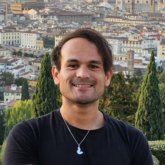PostDoc Fellowship: Robotic and Electrical Stimulation Platform for Integral Neuromuscular Enhancement (RE-SPINE)
Are you passionate about neural interfaces, electrical stimulation technologies and robotic systems aimed at restoring movement after neuromuscular injuries such as stroke? The NeuBotics Lab at the University of Twente is looking for a talented and motivated postdoctoral researcher to join our team as part of the ERC Proof of Concept RE-SPINE project. Our mission is to develop a neural-controlled ankle rehabilitation robot to enable post-strokeindividuals regain volitional control of their ankle joint. Ankle joint function restoration is critical to restore physiological gaint patterns in more proximal joints such as knee and hip.
Motor recovery after neuromuscular injuries is often sub-optimal. These limitations largely stem from current rehabilitation technologies operating with limited knowledge of pathology-specific neuromuscular characteristics and their response to prescribed treatments. Based on the technologies created in the NeuBotics Lab, you will develop a platform that:
1. Decodes the activity of ankle muscle motor units in real-time link to paper.
2. Evaluates the impact of transcutaneous spinal cord stimulation on motor unit activity
3. Discerns functional motor units from impaired motor units.
4. Estimates the ankle torque contributed from functional motor units and controls an ankle rehabilitation robots link to paper.
Your tasks will be:
As a postdoctoral researcher, you will lead the development and integration of advanced neuromuscular interfacing technologies, musculoskeletal models and personalized rehabilitation interventions. Your core tasks will include:
- Performing human measurements involving HD-EMG acquisition from lower-limb muscles of stroke patients and healthy volunteers.
- Developing algorithms for identifying and excluding motor unit filters associated to impaired motor units.
- Integrating real-time-decoded features of motor unit spared from injury into personalized musculoskeletal models to enable robust neural control of robotic assistance in stroke survivors.
- Real-time characterization of the effect that electrical stimulation and robotic assistance elicit over volitional control and motor unit-specific firing features.
About the Lab
The NeuBotics Lab is a multidisciplinary team at the forefront of neuromechanics and assistive robotics. Our work bridges neuroscience, biomechanics, and robotics to develop real-time models of joint biomechanics and adaptive control strategies for wearable exoskeletons and bionic limbs. You’ll be part of a dynamic, collaborative environment that values innovation, rigor, and translational impact.
Information and application
Apply by 23:59 on August the 21th, 2025. Interviews will take place in the week of September 1. Expected starting date is mid-October, 2025.
Screening is part of the selection procedure.
Applications should include the following documents:
- A video (2-minute max) describing your scientific interests and why you are applying for this position.
- A cover letter (1-page max) specifying how your experience and skills match the position as well as summarizing your scientific work.
- A CV including English proficiency level, nationality, visa requirements, date of birth, experience overview, and publication list.
- Contact information for at least three academic references. A support letter will be requested by us only if your application is considered
For more information on the open position, you can contact Prof. Massimo Sartori, mail: m.sartori@utwente.nl or dr. Rafael Ornelas Kobayashi , mail r.e.ornelaskobayashi@utwente.nl.
Please, only apply via the web platform and not via email.
About the department
Chair of Neuromuscular Robotics
You will be working within our academic Chair, where we interface robotic technologies with the neuromuscular system to improve movement. We apply artificial intelligence, computational modelling and biological signal processing, in a translational way, to develop novel real-time bio-inspired assistive technologies. Our goal is to establish a roadmap for discovering fundamental principles of movement at the interface between humans and wearable robots ultimately for improving human health. But, we are always open to embrace new approaches! Together with industrial leaders and an extensive network of clinical institutions, we cover the entire trajectory from modelling a given subject population to the development of assistive robotics technologies. Our work is facilitated by the University's TechMed Centre, the Robotics Center and the Digital Society Institute.Please, also check out our pages:
The Department of Biomechanical Engineering
You will also become a staff member of our Department. This consists of over 80 members and is engaged in a broad range of biomedical research topics. We focus on the design and control of medical robotic systems for a variety of clinically-relevant applications. Our department has a strong focus on prostheses, wearable exoskeletons, artificial organs, surgical robots, and rehabilitation robots. For example, the research in our department ranges from design and image-guided control of macro-micro-scale surgical robots, to developing neuromusculoskeletal models for control of both bionic limbs, to design and real-time control of soft wearable exo-suits. Moreover, we also evaluate our medical robots in pre-clinical trials. In collaboration with industrial leaders we also conduct research with existing commercial medical robots to further improve the technology.
We are part of the TechMed Centre, and have an extensive network of clinical institutions with whom we collaborate. We are also part of the MESA+ NanoLab, and have access to world-class cleanroom facilities. To learn more about the research within the Department of Biomechanical Engineering check our website.
About the organisation
The Faculty of Engineering Technology (ET) engages in education and research of Mechanical Engineering, Civil Engineering and Industrial Design Engineering. We enable society and industry to innovate and create value using efficient, solid and sustainable technology. We are part of a ‘people-first' university of technology, taking our place as an internationally leading center for smart production, processes and devices in five domains: Health Technology, Maintenance, Smart Regions, Smart Industry and Sustainable Resources. Our faculty is home to about 2,900 Bachelor's and Master's students, 550 employees and 150 PhD candidates. Our educational and research programmes are closely connected with UT research institutes Mesa+ Institute, TechMed Center and Digital Society Institute.




